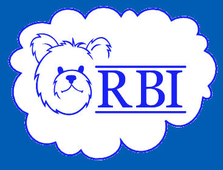This helpline is answered by Ark Behavioral Health, an addiction treatment provider with treatment facilities in Massachusetts and Ohio. Beginning down the road to recovery from alcohol or drug addiction may feel overwhelming, but that is where we can offer some assistance. Reach out to one of our addiction specialists for alcohol treatment help today. For many of these individuals, alcohol leads to significant disruptions in their everyday life.

Another reason narcissists are at risk of becoming addicted to alcohol is that they believe they’re impervious to its negative effects. Grandiose narcissists have an inflated sense of self, an unshakeable belief in their own superiority, and a lack of empathy for those around them. We talk loudly, interrupt people, and generally behave as if no one else’s feelings matter. When we drink, our inhibitions fall away, and we start to believe we are the most attractive, funniest, and cleverest person in the room.
Is There a Link Between Narcissism and Alcoholism?
They may dwell on it, or be haunted by it, and end up enraged or retaliating. The results speak to the effects that different types of narcissism have on alcohol use, alcohol problems and attitudes towards alcohol problems among young adults. Sherry Gaba, LCSW, is a licensed psychotherapist/author specializing in addictions, codependency, and underlying issues such as depression, trauma, and anxiety. Take our short alcohol quiz to learn where you fall on the drinking spectrum and if you might benefit from quitting or cutting back on alcohol.
For narcissists, manipulation is a way to use someone to get the reactions or attention they desire. Are you in a relationship with someone who puts themself and their drinking before others? It can be hard to hold a connection with someone who appears to only think about themselves. A loved one’s drinking and selfish behavior can be devastating and cause a great deal of pain and disappointment.
Do Narcissists Tend To Become Alcoholics?
Diagnosing co-occurring disorders can be difficult because the two conditions often affect each other and have overlapping symptoms. With dual diagnosis patients, it is always vital to obtain treatment for both disorders at the same time. Treating alcohol use disorder without addressing the narcissism or other mental health issues that underlie substance abuse will increase the chances of relapse and the need for more professional treatment. The current study contributed to the literature in the following ways. Third, this study differentially evaluated the relationship between grandiose and vulnerable narcissism and alcohol outcomes.
- Alcoholics can undergo similar shifts when under the influence and can seem like a different person in a matter of a few drinks.
- One limitation of this study is the lack of diversity in the sample’s age (18–25) and race (88% Caucasian).
- Even when an alcoholic doesn’t have a full diagnosis of NPD, they act in ways that are similar to a narcissist.
- It can be hard to hold a connection with someone who appears to only think about themselves.
Narcissistic personality disorder (NPD) is one of the Cluster B personality disorders, which are characterized by unpredictable and emotional behavior. Personality disorders are grouped into clusters based on similar traits. Narcissism and alcoholism are different conditions, but they can occur simultaneously and may share some overlapping symptoms. While both conditions can be challenging, certain approaches can help individuals overcome the potential complications of these disorders.
Dual Diagnosis: Alcoholism And NPD
Alcohol use disorder and narcissism are common co-occurring disorders, and in some cases, the symptoms of the two conditions may present similarly [1]. Not all narcissists are alcoholics, nor are all alcoholics narcissists, although alcoholism often causes people to develop narcissistic traits, such as arrogance, self-absorption, and a lack of empathy. Not all narcissists have problems with alcohol, but it isn’t uncommon for people with personality disorders to develop alcohol-related problems. Treatment for co-occurring narcissism and alcohol addiction typically involves a combination of therapy and medication.
- You could start by engaging with a mental healthcare provider or treatment center that specializes in dual diagnoses.
- If you think you have NPD, try to make an appointment with a mental health professional.
- Alcoholism is often described as a self-centered disease because it can cause people to act very selfishly.
- A 2018 study found that people with personality disorders were more likely to have AUD at some point in their lives.
- Meanwhile, vulnerable narcissists deal with inner shame that can make them more likely to develop alcohol abuse problems later on as a way to cope.
In general, narcissists don’t like to accept responsibility for what they say and do. When they abuse alcohol and develop a dependence on drinking, they may not accept or admit that there’s anything wrong with their life. In summary, whether alcohol is to blame or not, having a person with narcissistic traits in your life can be exhausting and upsetting. Whether or not this person decides to seek treatment, don’t overlook your well-being and your right to a healthy, happy life. The narcissist-like behavior of some alcoholics may only be a result of their addiction—it may not be how they really are when sober.
While there is room for interpretation, a person with NPD and/or AUD must meet a minimum standard before a diagnosis can be delivered with confidence. If you feel like you or someone you care about might be showing signs of being an alcoholic narcissist, there is hope, and there is no reason to be ashamed. Alcoholism is a very serious condition, and without treatment, it can lead to homelessness, failed relationships, and even early death. Many treatment programs utilize a 12-Step approach, and many of those recovering choose to attend meetings after they complete their treatment. Alcoholism is often described as a self-centered disease because it can cause people to act very selfishly.
- In terms of alcoholism, detoxification and rehabilitation programs can provide a structured environment for individuals to safely withdraw from alcohol and learn essential coping skills for sobriety.
- An individual with NPD will display a consistent pattern of narcissistic behavior.
- Treatment programs for vulnerable narcissists might focus on negative expectations while grandiose narcissists might need to focus more on recognition of problems.
- For many of these individuals, alcohol leads to significant disruptions in their everyday life.
- Both grandiose and vulnerable narcissism were predictors of alcohol consumption and alcohol-related problems.
- If people have risk factors for AUD, feel they are drinking excessively, or cannot control their alcohol intake, they can speak with a healthcare professional.
Narcissism is a personality disorder characterized by a pattern of grandiosity, a constant need for admiration, and a lack of empathy for others. Individuals with narcissistic personality disorder (NPD) often have an inflated sense of self-importance and believe they are superior to others. They may display arrogant and entitled behavior, constantly seeking attention and validation.
What’s the outlook for people with NPD or AUD?
Narcissistic personality disorder (NPD) is a recognized mental health condition, while alcoholism is classified as a substance use disorder. Common narcissistic traits of NPD include grandiosity, inflated self-image and self-worth, as well as a lack of empathy. Narcissistic personality disorder is just one of several personality disorders that can be dually diagnosed with alcoholism. However, there is some evidence that having narcissistic personality disorder can make you more vulnerable to alcohol abuse. Narcissistic personality disorder (NPD) and alcohol use disorder (AUD) are closely linked. Both are mental health conditions that can damage relationships, cause personal distress, and undermine a person’s quality of life and sense of well-being.
People with AUD may be unable to reduce or stop drinking despite experiencing the negative effects of alcohol or a desire to quit. Also, people with AUD might seem to behave similarly to people with narcissistic traits. According to the National Institute of Mental Health, 22.6% of people with a covert narcissism and alcoholism personality disorder also have a substance use disorder (SUD), which can include alcohol use. In fact, some research suggests that alcohol misuse might be more common among people who have narcissistic tendencies. Patience and support are therefore needed to ensure the best possible outcomes.



Add Comment